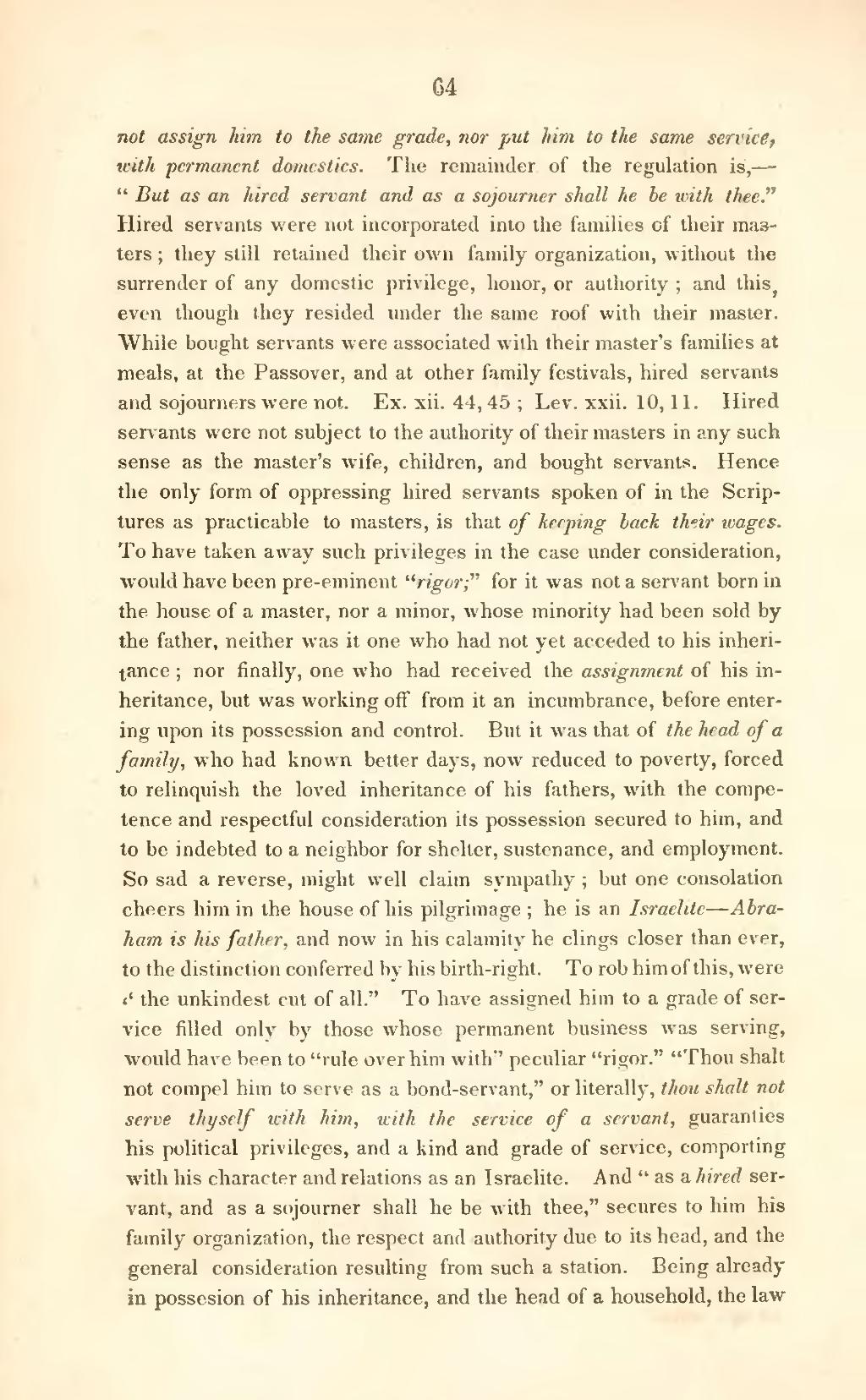64
not assign him to the same grade, nor put him to the same service, with permanent domestics. The remainder of the regulation is,—"But as an hired servant and as a sojourner shall he be with thee." Hired servants were not incorporated into the families of their masters; they still retained their own family organization, without the surrender of any domestic privilege, honor, or authority; and this, even though they resided under the same roof with their master. While bought servants were associated with their master's families at meals, at the Passover, and at other family festivals, hired servants and sojourners were not. Ex. xii. 44, 45; Lev. xxii. 10, 11. Hired servants were not subject to the authority of their masters in any such sense as the master's wife, children, and bought servants. Hence the only form of oppressing hired servants spoken of in the Scriptures as practicable to masters, is that of keeping back their wages. To have taken away such privileges in the case under consideration, would have been pre-eminent "rigor;" for it was not a servant born in the house of a master, nor a minor, whose minority had been sold by the father, neither was it one who had not yet acceded to his inheritance; nor finally, one who had received the assignment of his inheritance, but was working off from it an incumbrance, before entering upon its possession and control. But it was that of the head of a family, who had known better days, now reduced to poverty, forced to relinquish the loved inheritance of his fathers, with the competence and respectful consideration its possession secured to him, and to be indebted to a neighbor for shelter, sustenance, and employment. So sad a reverse, might well claim sympathy; but one consolation cheers him in the house of his pilgrimage; he is an Israelite—Abraham is his father, and now in his calamity he clings closer than ever, to the distinction conferred by his birth-right. To rob him of this, were "the unkindest cut of all." To have assigned him to a grade of service filled only by those whose permanent business was serving, would have been to "rule over him with" peculiar "rigor." "Thou shalt not compel him to serve as a bond-servant," or literally, thou shalt not serve thyself with him, with the service of a servant, guaranties his political privileges, and a kind and grade of service, comporting with his character and relations as an Israelite. And "as a hired servant, and as a sojourner shall he be with thee," secures to him his family organization, the respect and authority due to its head, and the general consideration resulting from such a station. Being already in possesion of his inheritance, and the head of a household, the law
